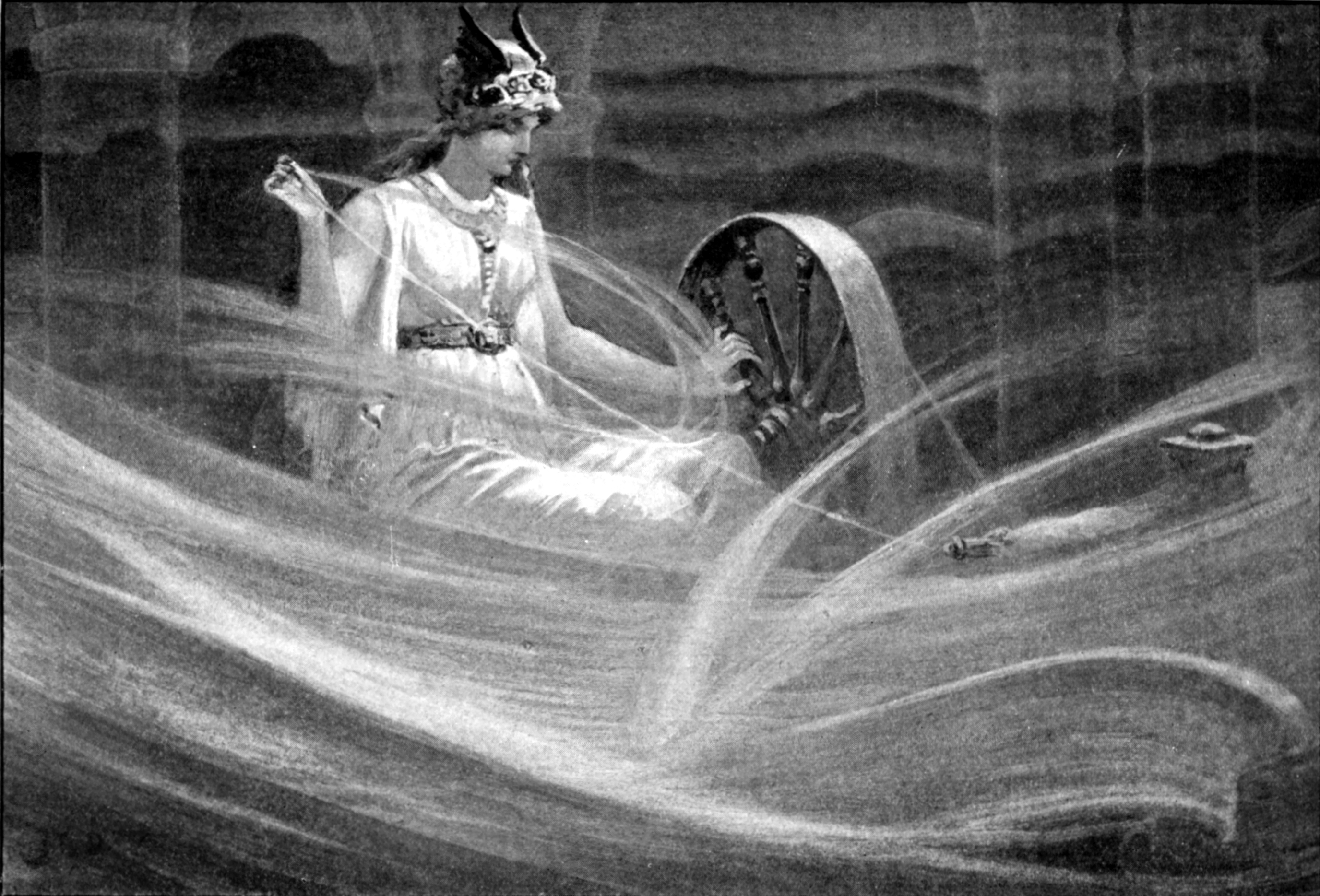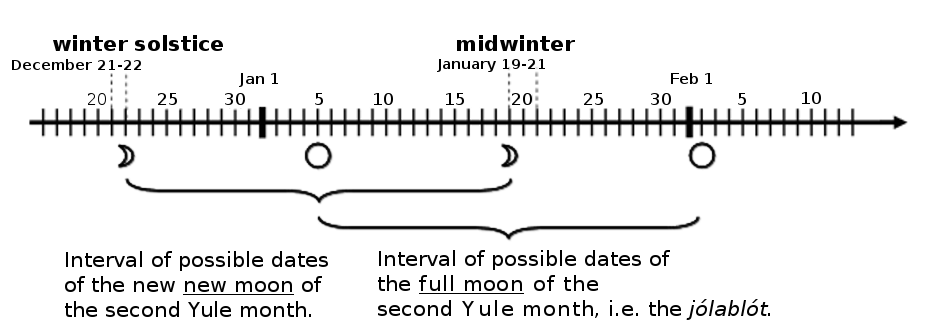 |
| Frigg weaves |
While some modern heathens choose to match ancient Germanic festivals with the Gregorian calendar, others try to stick to the lunar-solar calendar the Germanic people observed.

There are some problems calculating Góa month in either case, due to lack of sources on the festival. The month of Góa is alleged to have been the penultimate month of winter, according to the old, Norse calendar used in Iceland. According to some Icelanders, góiblót took place in late February - but if we follow the lunar-solar model then it would have been on the full moon, because the full moon marks the high festival of each month, and the new moon marks the start of the month, making the start of this year's Góa month either 23rd Jan, or 22nd Feb, ending either 22nd Feb or 23rd March 2020 - with the final month of winter ending in April when the rites of the start of Summer were held - associated with Easter-month in Anglo-Saxon England and all the variant May day celebrations across Europe.
So February seems to match up well enough for the dating, although I am unsure where the claim it is the penultimate month of winter originates. I know of two sources that mention Góa month and góiblót.
“It was the old custom in Svitjod to hold the main sacrifice in the Goi month in Uppsala. There sacrifices should be made for the peace and victories of the king. That's where the people from all over the Svear Empire should come, and at the same time the Thing of the Swedes should take place there.” -
Ólafs saga helga, chap. 77
Some say this Goi blot was a celebration of the return of vegetative forces - but this source makes no mention of that, and this would vary across Germanic Europe anyway according to latitude. Tonight is the full moon of February and the primroses and daffodils are already up here in West England, but perhaps this is not the case in Uppsala. Transferring a Norse calendar to the wider Germanic world may result in conflicts and anachronisms of this sort.
The second source is a fornaldarsögur which tells a different story. It says the Jotun King Fornjót, father of Ægir, the sea god, and who ruled Gotland, Kænland and Finnland, also had a daughter called Gói. There was a pious sacrificer called Thorri, who made a midwinter sacrifice called Thorra blót and one winter Gói disappeared at this blót - so they later had a sacrifice to find her and this was named góiblót but she did not appear. This seems to scream for a naturalistic interpretation; an obvious one, that Gói represents some green vegetation of a kind absent in midwinter, which people hope to see in Feb/March but don't if they live too far North!
In any case, tonight's Super moon is a holy night as is next month's and one of them is góiblót. Unfortunately we can't say precisely how góiblót should be performed. Obviously you must offer a sacrifice and pray for both peace, and victory for your leader in whatever battles your people are fighting at present. But to whom are the sacrifices and prayers offered? Gói? Perhaps a more familiar deity like Frigg? Some claim Góa month was known as women's month, and if so, then it seems proper to invoke a goddess on this festival.
Dr. Andreas Nordberg, an expert on the pagan lunar-solar calendar, believes that the Goa moon of Snorri's time was not the Goa moon of Heathen times which was in April. Nordberg writes:
"As well as Yule, the time of the disablot in Uppsala has also been the subject of much discussion. According to Adam of Bremen this event took place at “about the time of the vernal equinox”, whilst Snorri instead says that the event was held in the month of Gói, which lasted from mid-February to mid-March in the Icelandic calendar during Snorri’s lifetime. However, it is likely that the information given to Snorri did not refer to the Icelandic month, but the Swedish lunar month called Göje or Göja." (Jul, disting och förkyrklig tideräkning Kalendrar och kalendariska riter i det förkristna Norden Uppsala 2006, P.157)
"As well as Yule, the time of the disablot in Uppsala has also been the subject of much discussion. According to Adam of Bremen this event took place at “about the time of the vernal equinox”, whilst Snorri instead says that the event was held in the month of Gói, which lasted from mid-February to mid-March in the Icelandic calendar during Snorri’s lifetime. However, it is likely that the information given to Snorri did not refer to the Icelandic month, but the Swedish lunar month called Göje or Göja." (Jul, disting och förkyrklig tideräkning Kalendrar och kalendariska riter i det förkristna Norden Uppsala 2006, P.157)
Have I missed any other sources? Please let me know in the comments.



1 comment:
https://icelandmag.is/tags/month-goa
Post a Comment